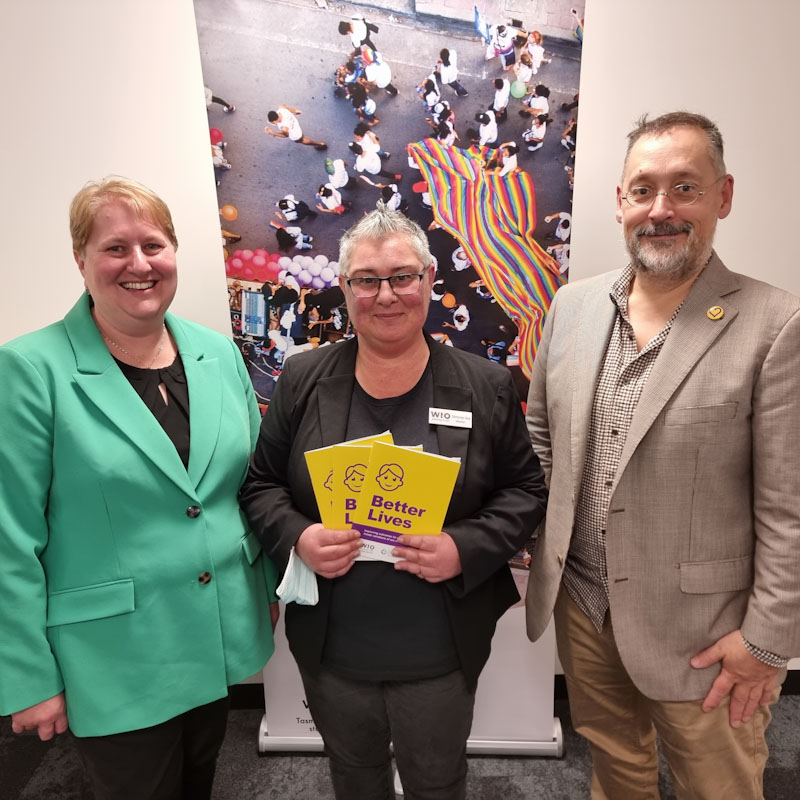Education the key to improving lives of intersex Tasmanians

Literature designed to increase health literacy of people that are going through or have recently been diagnosed with an innate variation of sex characteristics (intersex) has been launched by Working It Out, a LGBTIQ+ support service.
An Australian first, the Better Lives resources developed in Tasmania by Working It Out are proving to be in demand across the country, as the needs of the intersex community are becoming better understood.
Better Lives is a three-year, statewide project funded by the Tasmanian Community Fund (TCF) to improve the health and wellbeing outcomes of intersex Tasmanians.
Intersex is an umbrella term used to describe a wide range of innate bodily variations in sex characteristics. Intersex people have innate variations of sex characteristics that do not fit the typical definitions for male or female bodies, including sexual anatomy, reproductive organs, hormonal patterns, and/or chromosome patterns.
Simone-lisa Anderson, co-author of the literature and Better Lives project officer, said that collaborating with nationwide intersex experts, health and education professionals around Tasmania and Australia to produce this literature had created significant demand around the country for the resources.
“I’ve had many positive conversations with people who have said that we really need this kind of support and to ensure that it is widely available, not just here in Tasmania but also across the country,” she said.
“There are 40+ variations that come under the intersex umbrella, so the health outcomes and options are very diverse and need to be carefully considered by patients, health professionals, educators and carers.”
The literature focuses on capacity building within the intersex community, clarifying that being intersex doesn’t change who someone is, and that when a diagnosis is made that the patient understands sex characteristic variations are normal, there are many pathways and what they could expect to happen to their bodies at different stages.
"It is a natural part of our species diversity, but because the variations are ‘between our legs’, it was previously taboo to talk about it,” Ms Anderson said.
"Unfortunately, this means that the outcomes for children with innate variations to their sex characteristics have been very poor in the past, where young children were undergoing non-consensual surgeries to make them ‘more female’ or ‘more male’, which is against their human rights.
"And that's why this project is so great, because it gives an opportunity to teachers, doctors, nurses and other professionals to gain a knowledge base, meaning this community will more than likely have a better, more positive outcome throughout their lives, and avoid much of the shame and stigma that can come with these types of interventions.”
TCF Chairperson Sally Darke commended Working It Out on the early success of its educational resources, demonstrating the need for this type of literature to help support the Tasmanian intersex community.
“We know that education increases understanding and empathy, and by providing this literature to people working in the health and education fields, it will make a difference to the health and wellbeing outcomes of intersex Tasmanians,” she said.
“Health and education have a huge impact on all our of lives, and we see this project as a small but crucial step for this community, we are looking forward to seeing its rollout in the weeks and months ahead.”